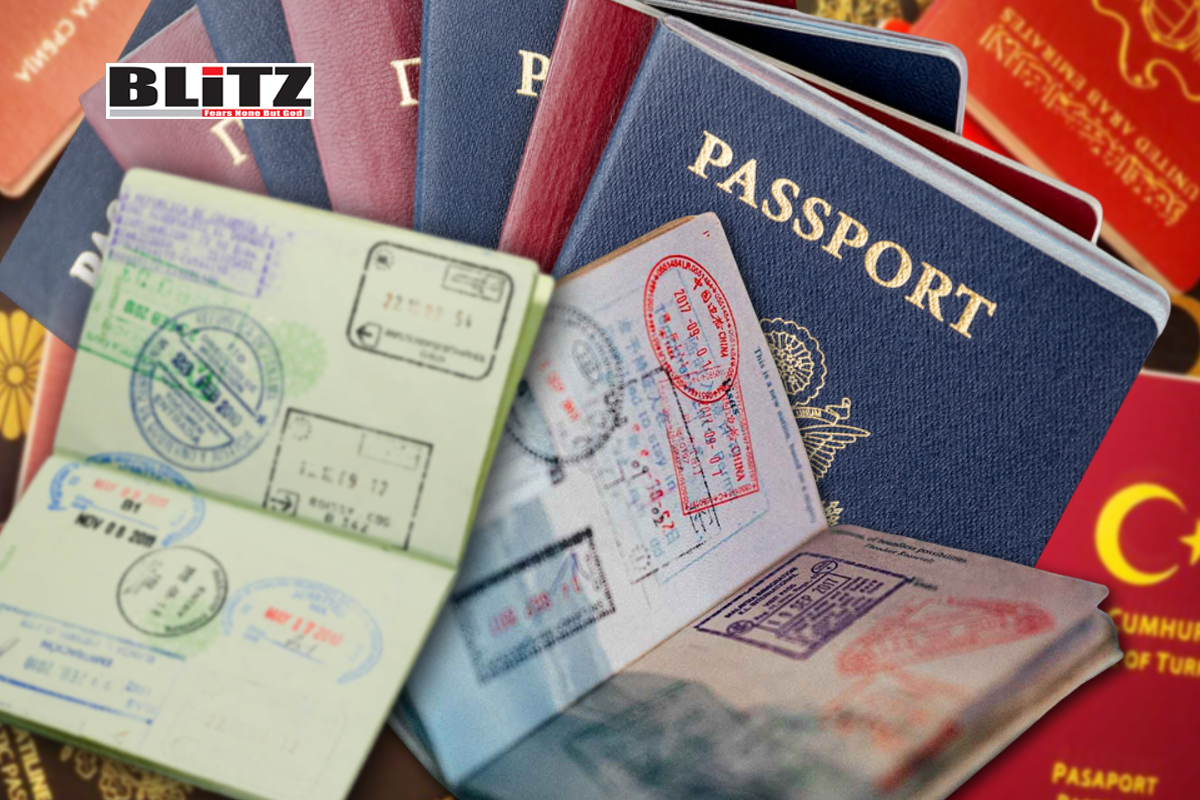In the fast-evolving landscape of investigative journalism, where massive troves of leaked data hold the keys to uncovering hidden corruption and financial secrecy, precision and efficiency have become critical. Recently the Global Investigative Journalism Network (GIJN) published a revealing article titled “Passports Are Key to Uncovering Offshore Secrecy – We Use Machine Learning to Find Them Efficiently,” highlighting how passports-seemingly mundane travel documents-have become one of the most essential tools in exposing offshore financial wrongdoing.
At the heart of this investigative revolution is the International Consortium of Investigative Journalists (ICIJ), a global network that has led some of the most significant journalistic breakthroughs of the 21st century, including the Panama Papers and Pandora Papers investigations. These monumental efforts exposed the complex financial webs spun by elites, politicians, and public officials worldwide to hide wealth and evade scrutiny. What many might not realize is that passports serve as vital identifiers in these investigations, helping to connect shadowy companies and trusts to real individuals.
Passports provide crucial, irrefutable data points-names, dates of birth, nationalities, and unique passport numbers-that allow journalists to pierce through layers of offshore anonymity. In jurisdictions where corporate ownership can remain opaque behind a veil of shell companies, trusts, and nominee directors, a passport scan is often the only way to link these entities back to actual people.
However, finding a passport scan buried among millions of documents is a daunting challenge. In massive data leaks, information can be buried in millions of files spanning PDFs, emails, images, and scanned documents. Passports rarely have obvious filenames, and Optical Character Recognition (OCR) software struggles with the poor quality of many scans. Journalists previously relied on keyword searches using ICIJ’s open-source search engine, Datashare, filtering for terms like “passport” or “visa” and specific file types. But this approach generated an overwhelming number of false positives and missed many passport images entirely.
To address these challenges, ICIJ partnered with the AI Journalism Resource Center at Oslo Metropolitan University (OsloMet) and Norway’s national broadcaster, NRK, to develop an advanced machine learning (ML) tool aimed specifically at detecting passports quickly and accurately within massive document sets.
The solution leverages computer vision, a branch of artificial intelligence that enables machines to “see” and interpret visual data. At the core of the project is YOLO (“You Only Look Once”), an open-source object detection algorithm initially designed for generic image recognition tasks. The team customized YOLO to identify passport layouts, training the model with a diverse dataset of annotated passport images collected by ICIJ and its collaborators.
The process begins by converting every document into an image file, which the model then scans for potential passport pages. When the model detects a passport, it extracts information from the Machine Readable Zone (MRZ)-the two lines of coded text at the bottom of passport photo pages. This extraction captures critical fields like the passport holder’s name, date of birth, nationality, and passport number.
The results have been outstanding. The customized YOLO model achieved an 86% precision rate-meaning only 14% of images flagged as passports were false positives-and an almost perfect recall rate, successfully identifying nearly 100% of actual passport pages in the test dataset.
ICIJ integrated the passport detection tool into their existing document processing workflow. The model runs as a service capable of scanning up to 500 document pages per minute on a machine equipped with a 16GB GPU. After the model’s automated detection, the data team reviews the results using Prophecies, an open-source platform designed for fact-checking and verification.
Once passports are validated, they are tagged in Datashare, making them instantly searchable for journalists around the world. This integration significantly speeds up the investigation process and sharply reduces the volume of irrelevant documents that journalists need to examine manually.
A case study from the Pandora Papers investigation illustrates the tool’s impact: from an initial pool of over 110,000 documents, the team narrowed down to about 75,000 image-containing files. The machine learning model flagged approximately 1,000 potential passports. After multiple rounds of human validation, journalists confirmed roughly 500 unique passports with accurate country information. This reduced manual review workload from 110,000 documents to just 3,000-a massive efficiency gain that saved weeks of labor.
While the machine learning tool automates a substantial part of the detection process, human involvement remains indispensable. This collaboration between AI experts and investigative journalists exemplifies the “human-in-the-loop” AI model, where machines handle large-scale, repetitive tasks and humans provide critical judgment, verification, and editorial decisions.
Agustin Armendariz, a senior data reporter at ICIJ, explains, “Country lists of passport owners and beneficial owners are often the best starting point for reporters new to a leak to begin searching for a story relevant to their audience.” He also stresses that the passport identification tool allows investigators to quickly find individuals of public interest in massive leaks and to focus their deeper analysis on the most promising leads.
Handling passport data presents serious ethical and legal concerns. Such personal data must be treated with stringent confidentiality and security. The tool and its underlying data never leave ICIJ’s secure infrastructure. Contributors and collaborators are all bound by strict non-disclosure agreements.
Importantly, ICIJ decided not to release the model’s weights publicly to prevent potential reverse-engineering attacks that could jeopardize source anonymity and data integrity. Although the model itself remains proprietary, ICIJ is exploring ways to share the methodology behind the tool so that other journalistic organizations can build their own detection models using their data, fostering a wider ecosystem of machine-assisted investigative journalism.
The development and deployment of this passport detection tool symbolize a growing intersection of investigative journalism and cutting-edge technology. It demonstrates how AI, particularly computer vision and machine learning, can transform the way journalists sift through mountains of data, allowing them to spend less time on drudgery and more time on analysis, storytelling, and verification.
As data leaks become increasingly large and complex, tools like this will be indispensable for newsrooms worldwide. They mark a critical evolution-from manual keyword searches and endless scrolling to sophisticated AI-driven workflows that can unearth connections hidden deep in unstructured data.
This technology also underlines the importance of innovation, collaboration, and ethical considerations in journalism. The synergy between AI researchers and investigative journalists offers a blueprint for future projects that leverage artificial intelligence responsibly, without compromising accuracy or confidentiality.
While the passport detection model currently focuses on a specific type of document, the principles behind it could be applied to identify other critical documents in leaks-contracts, emails, financial statements, or identification cards-potentially revolutionizing the field of investigative journalism.
In an era where transparency is often obscured by sophisticated financial and legal arrangements, machine learning-powered tools empower journalists to pierce through the opacity. By combining technological prowess with journalistic rigor, the ICIJ and its partners set a precedent for how investigative journalism can adapt and thrive amid the growing data deluge.
The passport detection tool is more than a technical innovation-it is a powerful instrument in the global fight against corruption and financial secrecy. As the world’s elites seek ever more complex ways to hide their wealth and influence, journalists armed with AI and machine learning stand ready to expose the truth, one passport at a time.
Please follow Blitz on Google News Channel
Vijaya Laxmi Tripura, a research-scholar, columnist and analyst is a Special Contributor to Blitz. She lives in Cape Town, South Africa.
ai-tool-helps-journalists-detect-passports-hidden-in-massive-offshore-data-leaks















Leave a Reply